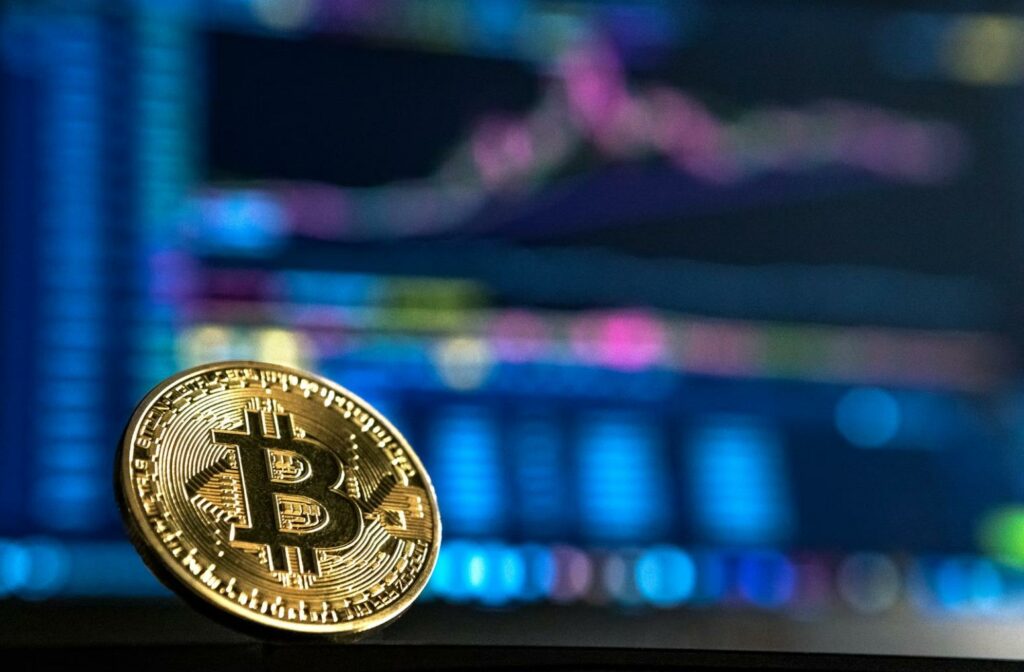Since the beginning of 2022, Bitcoin BTC 3.26% has stumbled below $36,000. On January 23, the price of Bitcoin once fell below $35,000 per piece, creating a new low since September 2021.
According to Coindesk data, as of 20:14 on January 23, Beijing time, the price of Bitcoin was $35,636.13 per piece, a drop of nearly 20% in the past week. It has fallen by nearly 30% so far this year.
As of 20:12 on January 23, Bitcoin’s position was liquidated by $1.7574 million in one hour. 4 hours of liquidation of 7.4782 million US dollars. 12 hours liquidation of 20,077,200 US dollars.
In fact, since the record high price of $68,928.9 per piece on November 10 last year, Bitcoin has entered a volatile downward channel, with a current drop of more than 40%. It created the longest decline since 2018.
Many market analysts said that the tightening of monetary policy by the Federal Reserve, the general sell-off of technology stocks, and the regulation of Bitcoin’s “industrial chain” from mining, trading to online marketing in many countries are the main reasons for this round of Bitcoin’s decline.
The global regulatory wave is back
In the new year, it appears that cryptocurrencies will face heightened global regulatory pressure.
On January 17, local time, after the scandal of Internet celebrities promoting cryptocurrencies on social networks, the Spanish National Securities Market Commission said that it would impose restrictions on the promotion of cryptocurrencies by public figures, which is the first country to take measures within the European Union.
Specifically, CNMV requires influential individuals and sponsoring companies to report at least 10 days in advance when promoting activities, and warns of the risks of cryptocurrencies, or they will face fines. Rodrigo Buenaventura, head of the regulator, said in an interview with the media: “If the promotion of influencers is not covered in the regulatory field, there will be a loophole. For us and them, this is a completely new field, which will inevitably lead to Friction. But friction always happens when rules are introduced for some areas that were previously unregulated.”
Around the same time, the Monetary Authority of Singapore (MAS) also restricted the promotion of cryptocurrencies. “Recently, some DPT (Digital Payment Token) service providers have aggressively promoted their services online or in public areas. This may lead to impulse purchases of DPT transactions by consumers without fully understanding the associated risks. The new guidelines clarify It is the expectation of the Monetary Authority of Singapore that DPT service providers should not be involved in the marketing or advertising of DPT services.” MAS said DPT service providers can only conduct marketing or marketing on their own corporate websites, mobile applications or official social media accounts or Advertising.
Two days later, on January 19, local time, the UK Financial Conduct Authority (FCA) proposed to reform the rules related to the sale of high-risk investments to the public in response to related financial risks. “Too many people are being led to invest in products that they don’t understand and that are too risky for them,” said Sarah Pritchard, chief executive of markets at the FCA. The draft reform includes details on how the financial regulator will regulate cryptocurrency advertising. Previously, the British Treasury stated that it would bring the regulation of digital token promotion into the FCA’s responsibilities.
In contrast, Russia has a harsher stance on cryptocurrencies. On January 20, local time, the Central Bank of Russia said it would propose a ban on cryptocurrency trading and mining, with the intention of banning all cryptocurrency-related businesses in the country.
The Central Bank of Russia noted that the proportion of payment transactions in cryptocurrencies is negligible compared to traditional payment systems. But due to the anonymity of transactions, currency substitutes are widely used for illicit activities. “Currently, the participation of traditional financial intermediaries in the cryptocurrency market is limited, but the trading volume of cryptocurrency-related derivatives and exchange-traded fund (ETF) shares is growing, and the decentralized finance (DeFi) ecosystem is developing.”
“In the long run, the potential of using cryptocurrencies for settlement seems limited.” The Russian central bank noted that the rapid growth in the market value of cryptocurrencies such as Bitcoin was mainly stimulated by speculative demand and expectations of further price increases, which led to The formation of bubbles in the market.
The Bank of Russia further noted that, like dollarization, cryptocurrencies limit the sovereignty of monetary policy, which could force the central bank to maintain a permanently high key interest rate to curb inflation. This will reduce the credit affordability of households and businesses. “For emerging market economies, including Russia, the potential risks to financial stability arising from cryptocurrencies are much higher, especially due to the traditional preference for dollarization and insufficient levels of financial literacy.”
To mitigate threats related to the expansion of cryptocurrencies, the Central Bank of Russia will propose a ban on the issuance and circulation of cryptocurrencies within the Russian Federation (including cryptocurrency exchanges, P2P platforms); a ban on financial institutions investing in cryptocurrencies and related financial instruments, and Use of Russian financial intermediaries and Russian financial infrastructure for cryptocurrency transactions; banning the mining of certain types of cryptocurrencies, etc.
However, Russians will still be allowed to hold cryptocurrencies overseas, and those with offshore foreign exchange accounts will be able to trade cryptocurrencies, Elizaveta Danilova, head of Russia’s central bank’s financial stability department, said. At the same time, she also warned that regulators will track the holdings of domestic investors. “It is very important to ban the use of Russian financial infrastructure to acquire cryptocurrencies, and we think this will help remove a large part of the risk and ensure that the popularity of cryptocurrencies cools down.”
It is worth mentioning that developed economies represented by the United States have always been more tolerant of cryptocurrencies. But the U.S. Securities and Exchange Commission (SEC) has made it clear that cryptocurrency exchanges will be the main focus of its regulation of digital assets in 2022.
On January 20, local time, SEC Chairman Gary Gensler expressed the hope that the trading platform will take steps in the next few months to accept more direct supervision from financial regulators. “Additional scrutiny is critical for cryptocurrency investors to get the type of protection they get when trading stocks or other assets.”
bearish and bullish
According to Jason Deane, an analyst at digital asset research firm Quantum Economics, rumours of a Russian mining ban, the impact of a scaling back plan and ongoing regulatory concerns in some jurisdictions now weigh more heavily in trading and investment decisions than long-term cryptocurrencies fundamental considerations. “At the same time, the increased use and adoption of Bitcoin in a hyper-inflationary economy has created a chaotic market situation.”
Jason Dean expects cryptocurrencies such as Bitcoin to see “volatile and directionless trading” in the short term, with further weakness likely in the future.
UBS analyst James Malcolm said directly that cryptocurrencies will usher in a cold winter. According to UBS data, there are currently almost zero short-term holders of Bitcoin.
According to James Malcolm, investors have come to realize that the cryptocurrency is not actually a better currency given its volatility and limited supply. And will face more stringent global regulation in the future, “stable coins with soaring prices and decentralized finance projects will definitely face government crackdowns in the next few months.”
However, there are still some Internet giants who insist on being optimistic about Bitcoin. A few days ago, Sam Bankman-Fried, CEO of the cryptocurrency trading platform FTX, said in an interview with the media that he believes that the price of bitcoin may exceed $100,000. “Of course, the performance of bitcoin may also be far less good than we expected.” At the same time, he emphasized that it is only a matter of time before a more efficient Bitcoin spot ETF arrives from a consumer perspective.
Compared with Sam Bankman’s prediction, Michael Saylor, the founder and CEO of MicroStrategy, the world’s largest listed company holding bitcoin, is very decisive. Recently, he reiterated that he would not sell any of his bitcoin holdings, even in the face of a prolonged bear market. In his view, Bitcoin is the best way to fight inflation. He expects the bitcoin price to first hit $600,000 and then eventually $6 million.






